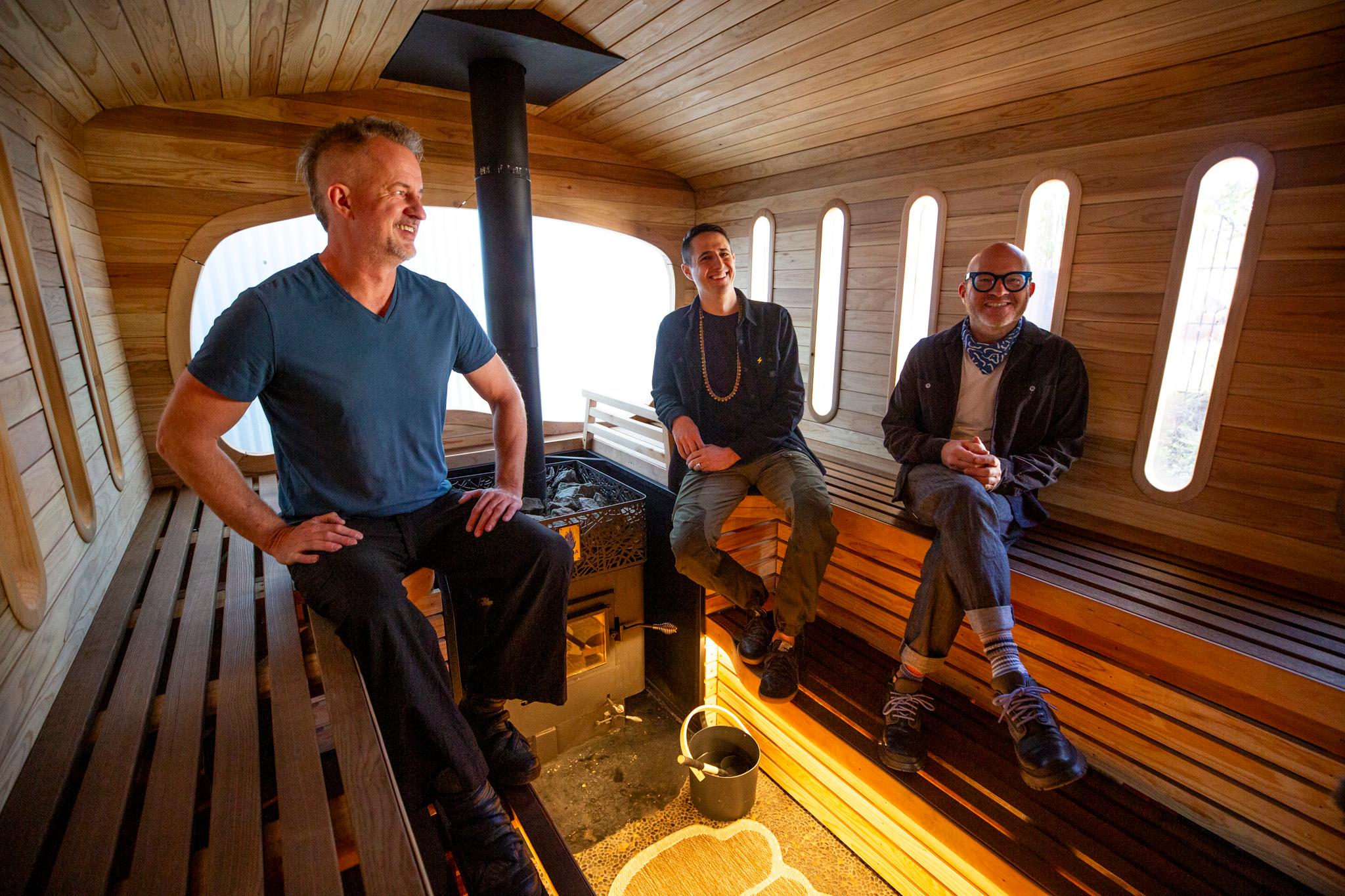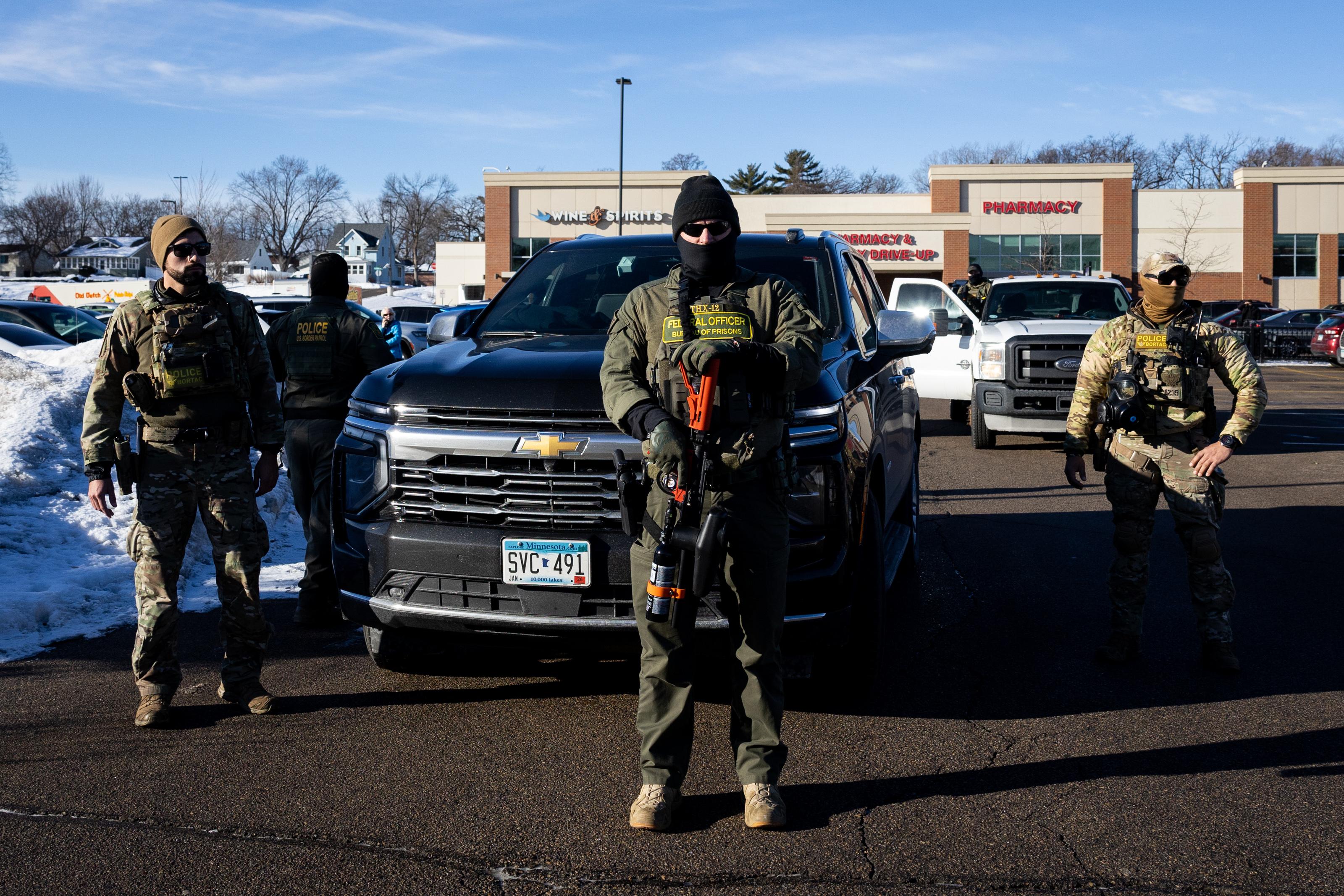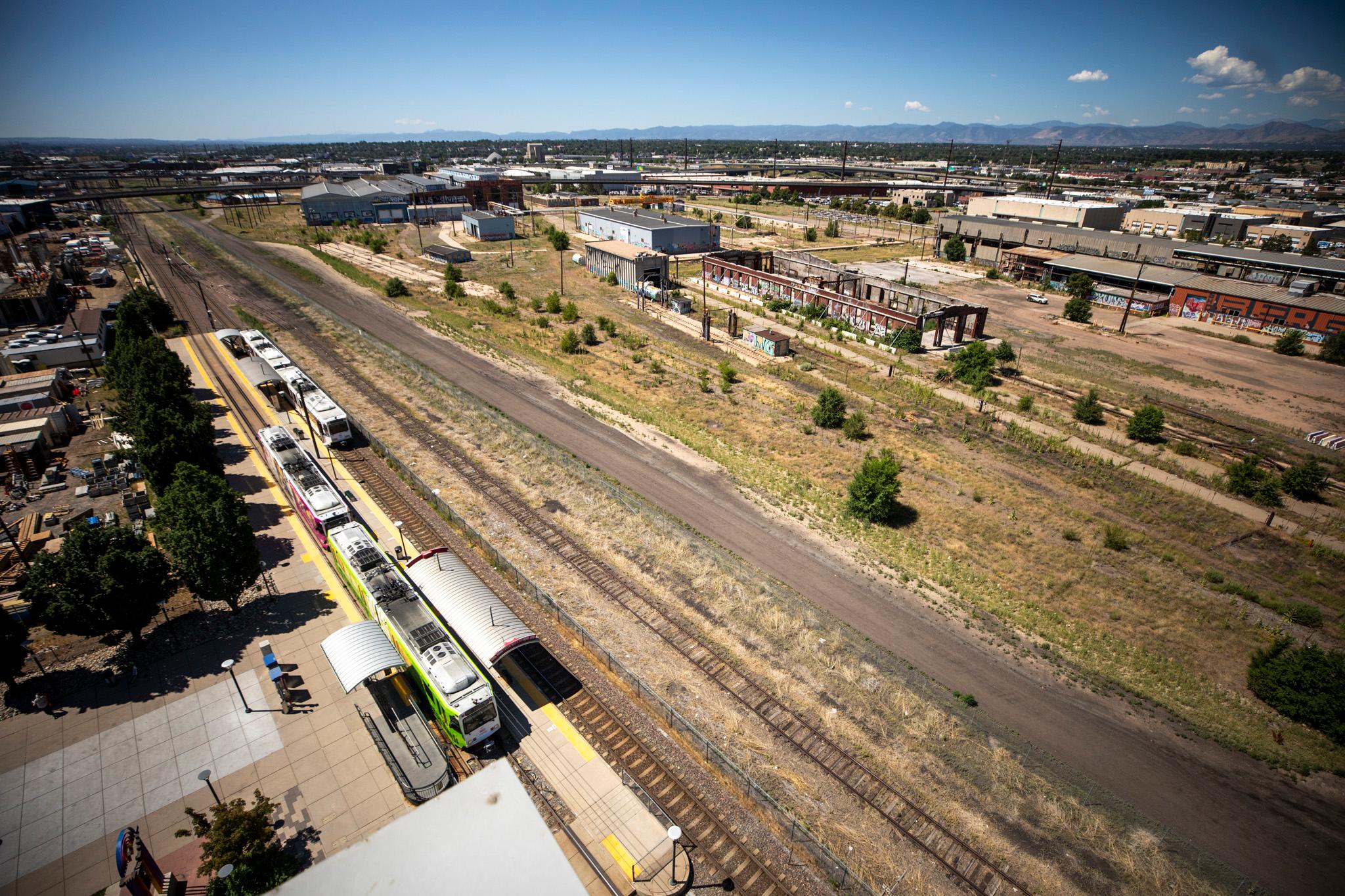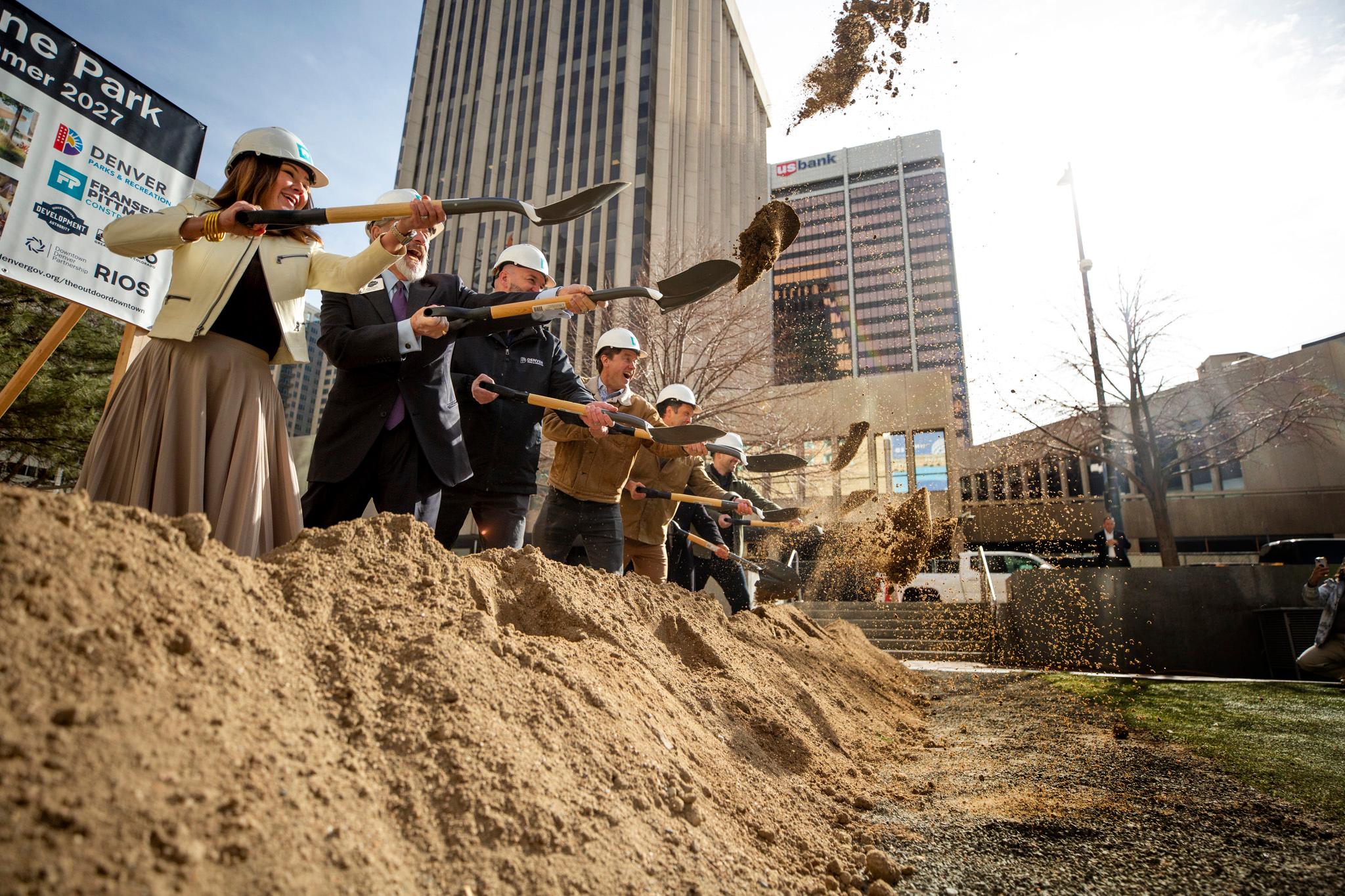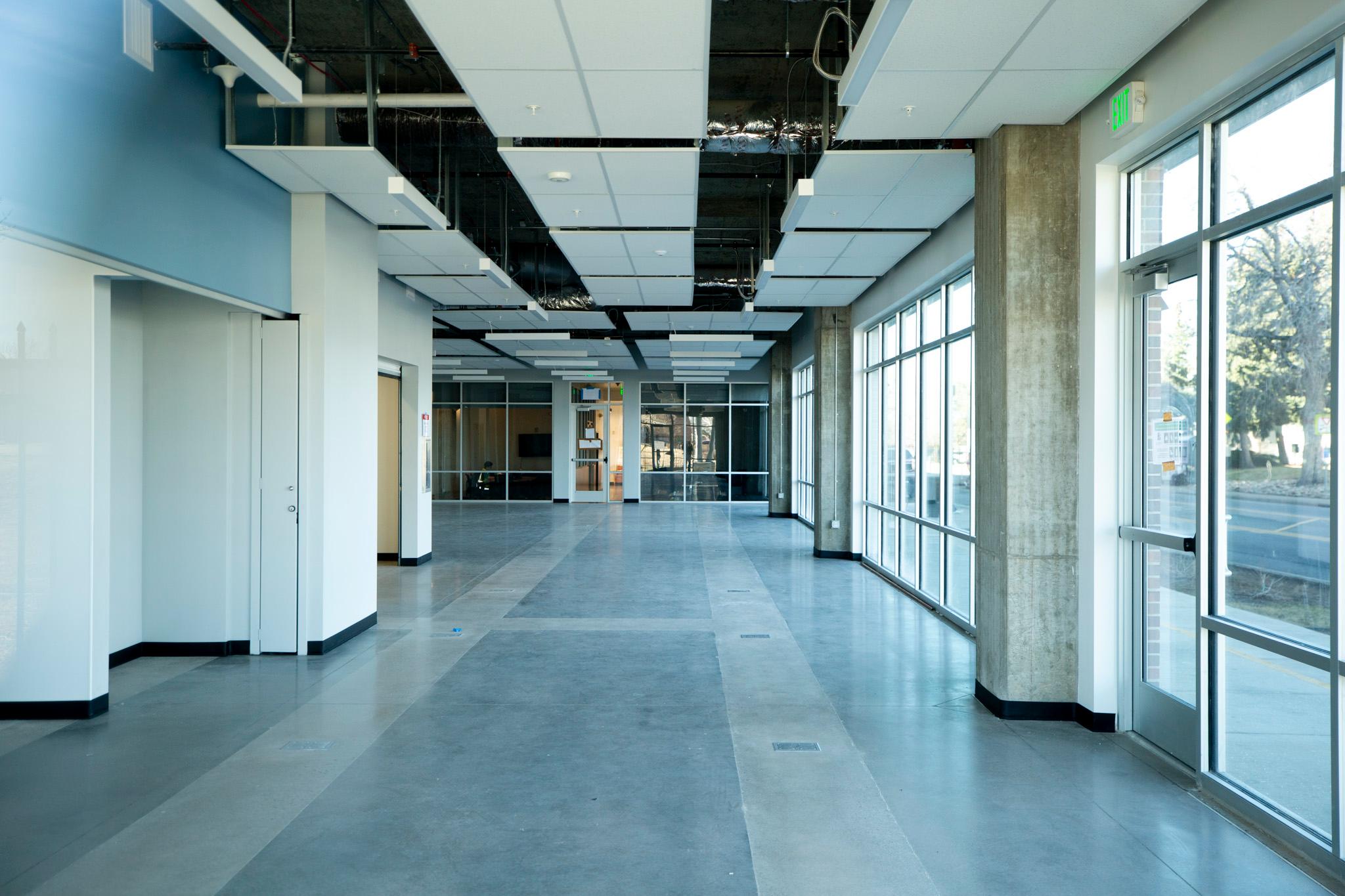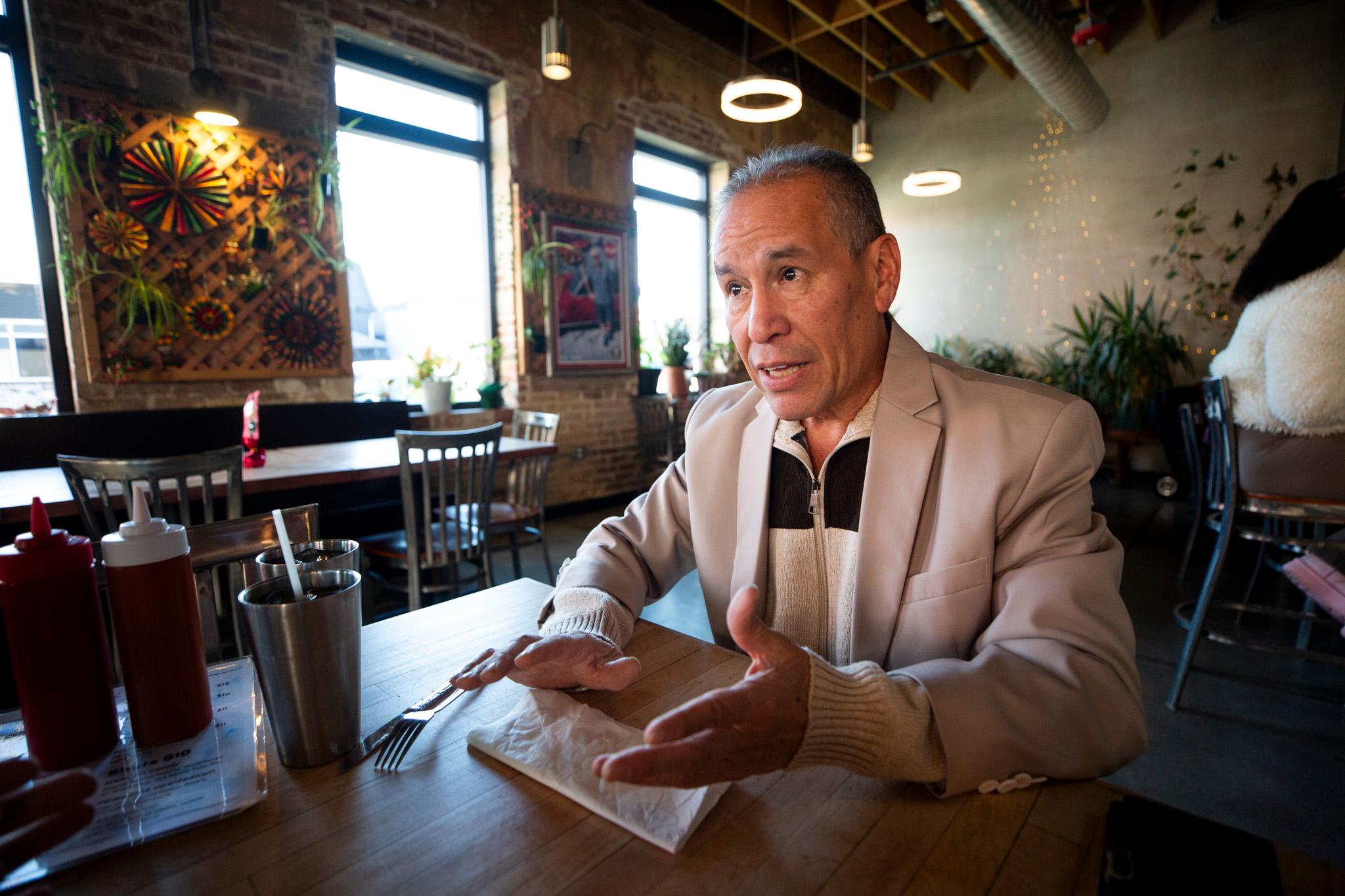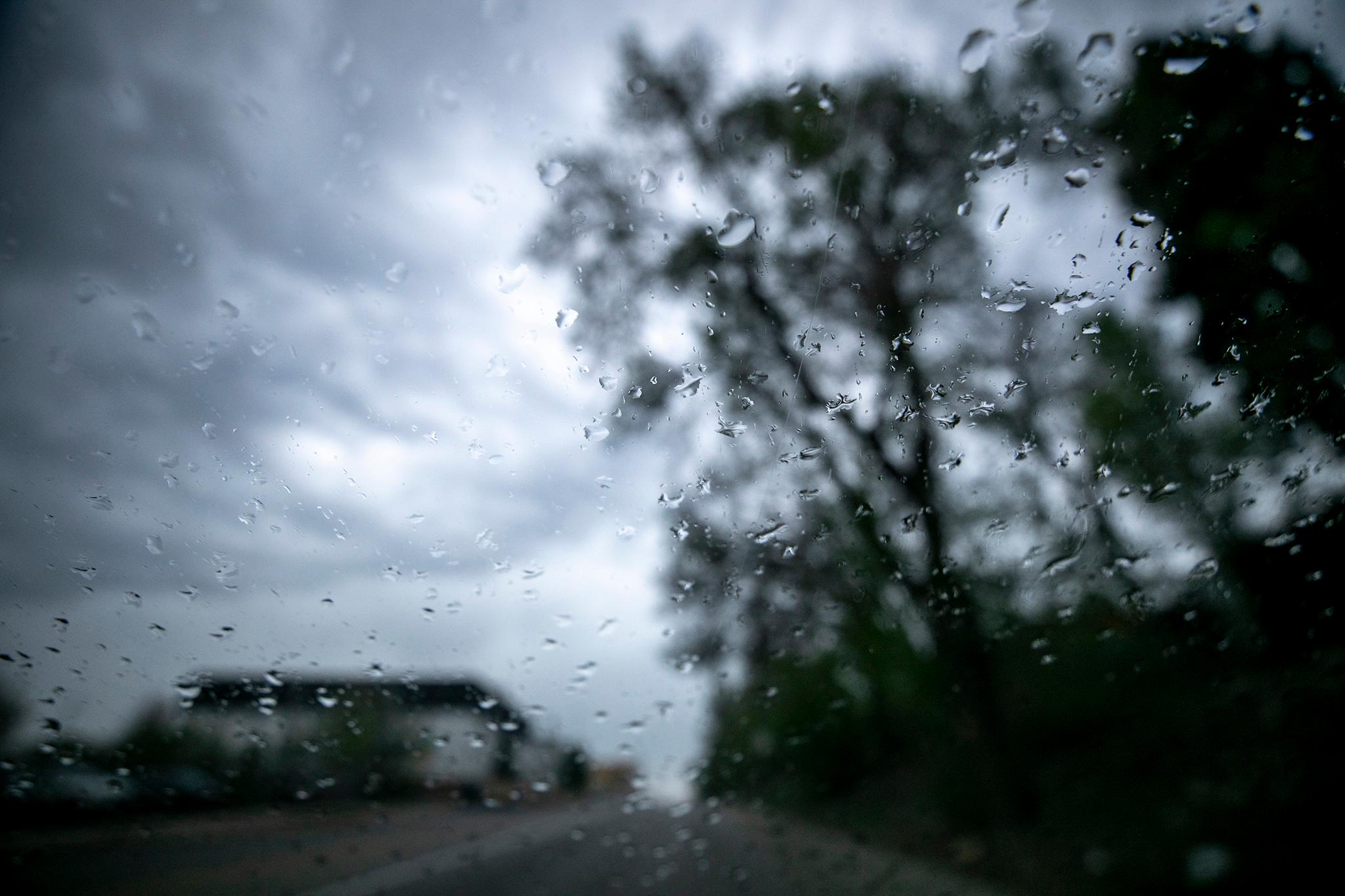The team behind Coba is a long way from realizing its grand vision to put a pool-packed wellness mecca south of downtown Denver.
So, for the moment, the company — named by combining the words “Colorado” and “bathhouse” — has settled for a sauna on wheels.
A custom-built trailer, called the Cobacita, sits at the site of the planned bathhouse in the La Alma neighborhood near Denver's Auraria Campus. Behind a set of folding glass doors, visitors will find rounded cubbies for their belongings and curtains blocking off a pair of changing areas.
The sauna itself offers benches for 16 people around a wood-burning stove. Cold plunge pools, of course, await outside to reduce inflammation and shock anyone’s frayed nervous system back into the embodied present. It’s all meant to offer a preview of the far more ambitious plans for the former industrial site at 1339 N. Osage St.
Coba aims to eventually transform the property into a new type of cultural destination in Denver.
Over the next few years, the company plans to renovate a pair of brick buildings built shortly after World War II. The company spent $3.5 million to buy the property late last year.
One will house a reception desk, locker rooms and a café. The other is set to transform into an 8,500-square-foot bathhouse packed with 13 different spa amenities, including saunas, hot tubs, a steam room and float pools. The entire complex will have capacity for more than 400 people, according to planning documents.
“Imagine a spa that's as accessible as a beer garden,” said Adam Lerner, the company's chief strategic officer.
Similar bathhouses have proven popular in New York City and San Francisco. There are also a number of traditional bathhouses in the Denver area already, including a traditional Korean bathhouse in Aurora and a Russian bathhouse on Colfax.
Memphis Orion, the company’s CEO, wants to build on traditional bathhouse culture to take advantage of the rising skepticism of alcohol among Generation Z. Someday, he imagines, the bathhouse could provide an alternative “third place” where Denverites can gather, instead of a bar or a brewery.
“We're providing another opportunity for people to come together, down-regulate and have an experience that's more about being connected with each other,” Orion said.
Not exactly a hot spring, but geothermal
Public bathhouses have offered an oasis in cities like Tokyo and Budapest for centuries.
Those locations often relied on local resources to create communal spaces. In Japan, for example, traditional sentos have heated pools by burning scrap wood from nearby demolition projects. Most residents now bathe instead in water piped over long distances and heated by natural gas.
Coba aims to take advantage of a different local resource: geothermal energy. Last week, the Colorado Energy Office announced the project had earned a $526,200 state tax credit to build a thermal energy network in Denver.
The system will rely on a series of 500- to-800 foot boreholes drilled beneath an existing parking lot. At those depths, the Earth’s temperature barely changes with the seasons, hovering at around 50 degrees Fahrenheit year-round.
By linking the boreholes to heat pumps, the bathhouse would use electricity to harvest the ambient underground energy to heat its indoor spaces. In the summer, the system could work in reverse to shift heat underground and cool occupants.
It’s a concept already helping Colorado Mesa University, in Grand Junction, save thousands of dollars on its energy costs. On a smaller scale, individual homeowners can tap steady underground temperatures by drilling wells straight into their backyards.
Coba can’t build a big enough borehole field at its current site to serve all its energy needs. In the short term, the bathhouse plans to rely on natural gas to heat water for its many planned hot tubs. But Orion has also started conversations with Domo — a Japanese restaurant next door — about someday expanding the geothermal network across both properties.
With a big enough system, the bathhouse could someday resemble something closer to a natural hot spring. Only instead of geological cracks bringing hot water to the surface, modern technology would let visitors bathe in energy harvested from Earth’s shallow crust.
Gov. Jared Polis has made it a priority to jump-start a geothermal energy industry in Colorado. In a written statement, Ari Rosenblum, a spokesperson for the Colorado Energy Office, said Coba received a tax credit because the project aligns with state goals to cut climate-warming emissions and adopt innovative clean energy solutions.
Don’t get your bathing suits just yet
It’s unclear exactly when Coba will open its public bathhouse — or what it will cost to visit.
The company is still raising capital and considering loans to support construction, and it’s waiting for city officials to approve initial plans for the facility. Orion declined to say when the company expects to open the bathhouse, but it’s already allowing people to book sessions inside its Cobacita sauna currently located on-site.
The company will offer memberships and one-time drop-in visits, but it hasn’t yet detailed how much visitors will pay for either option. Lerner, however, insisted the price won’t exceed the cost of a nice lunch out.
“We believe that deep relaxation should be a part of the flow of your daily life, not a kind of escape from your life that you do once or twice a year. It's priced to allow you to come four or five times a month,” Lerner said.
Lerner has some experience attracting visitors to less traditional cultural experiences. In 2019, he stepped down as the director and chief animator of the Museum of Contemporary Art Denver.
He hopes the bathhouse will offer a different type of civic gathering space built around relaxation. Once it's fully established, he expects roughly 300,000 people will visit the facility annually, lured by the prospect of deep relaxation at an affordable price.
“This is the next evolution in leisure. It's a lack we’re making up for,” Lerner said.

